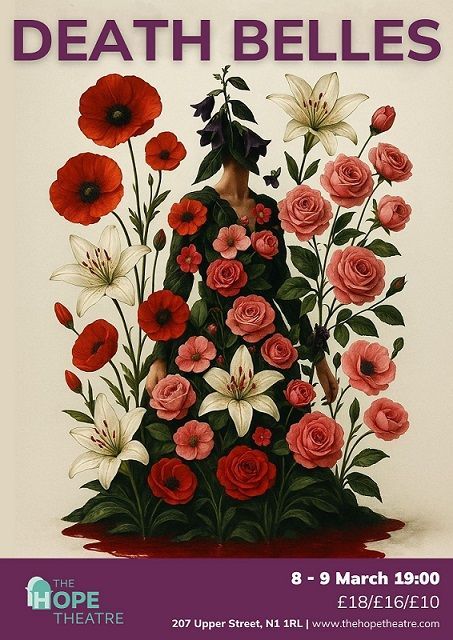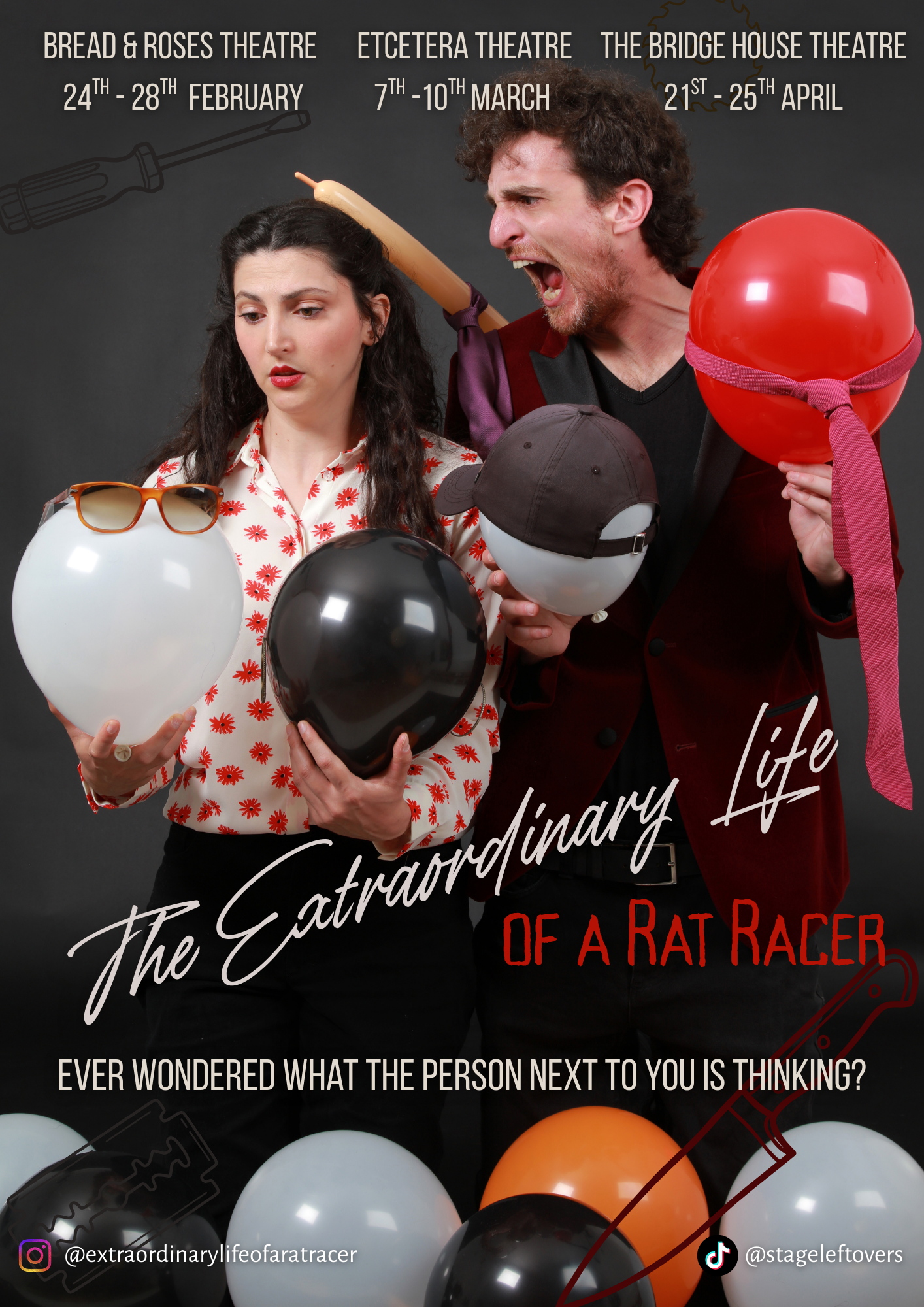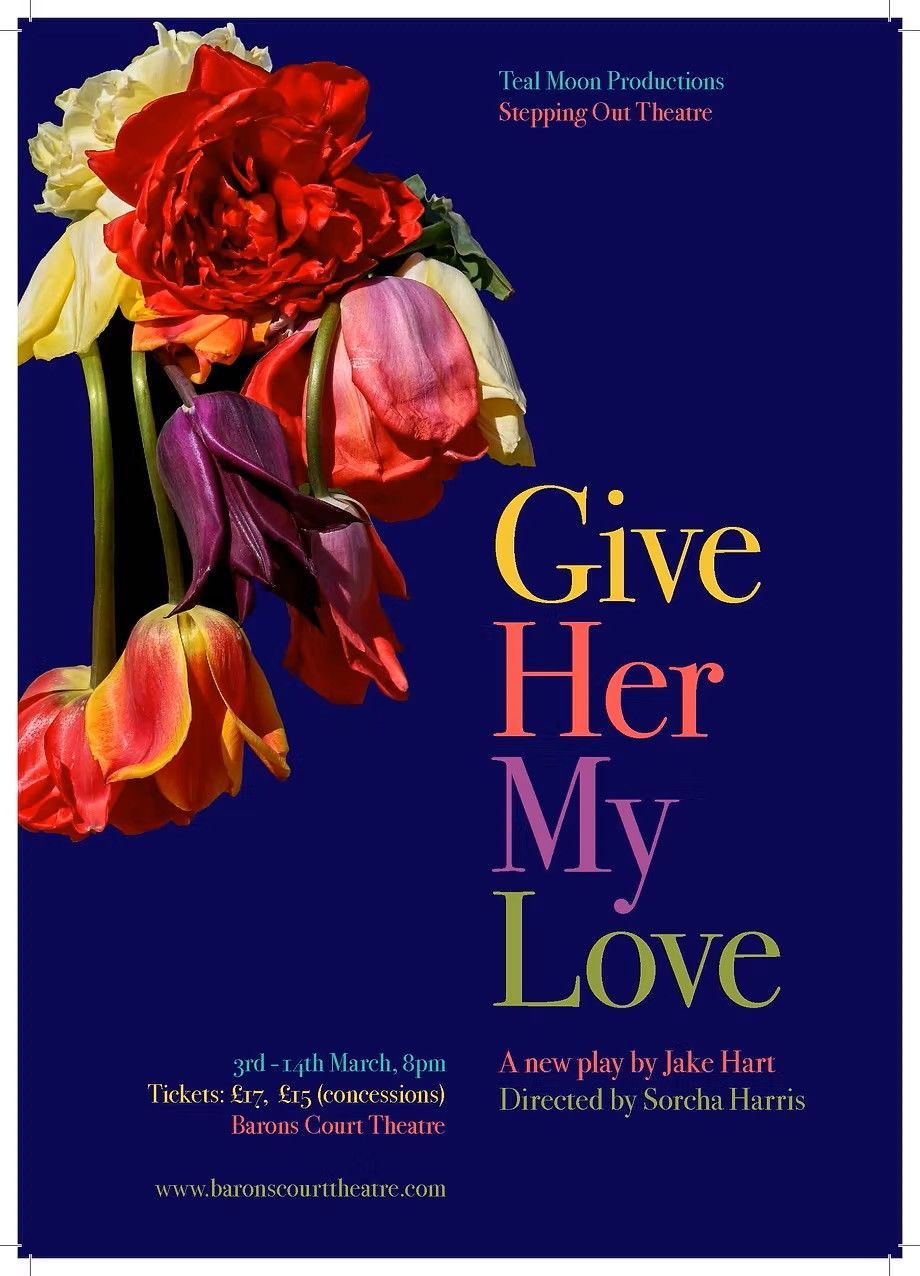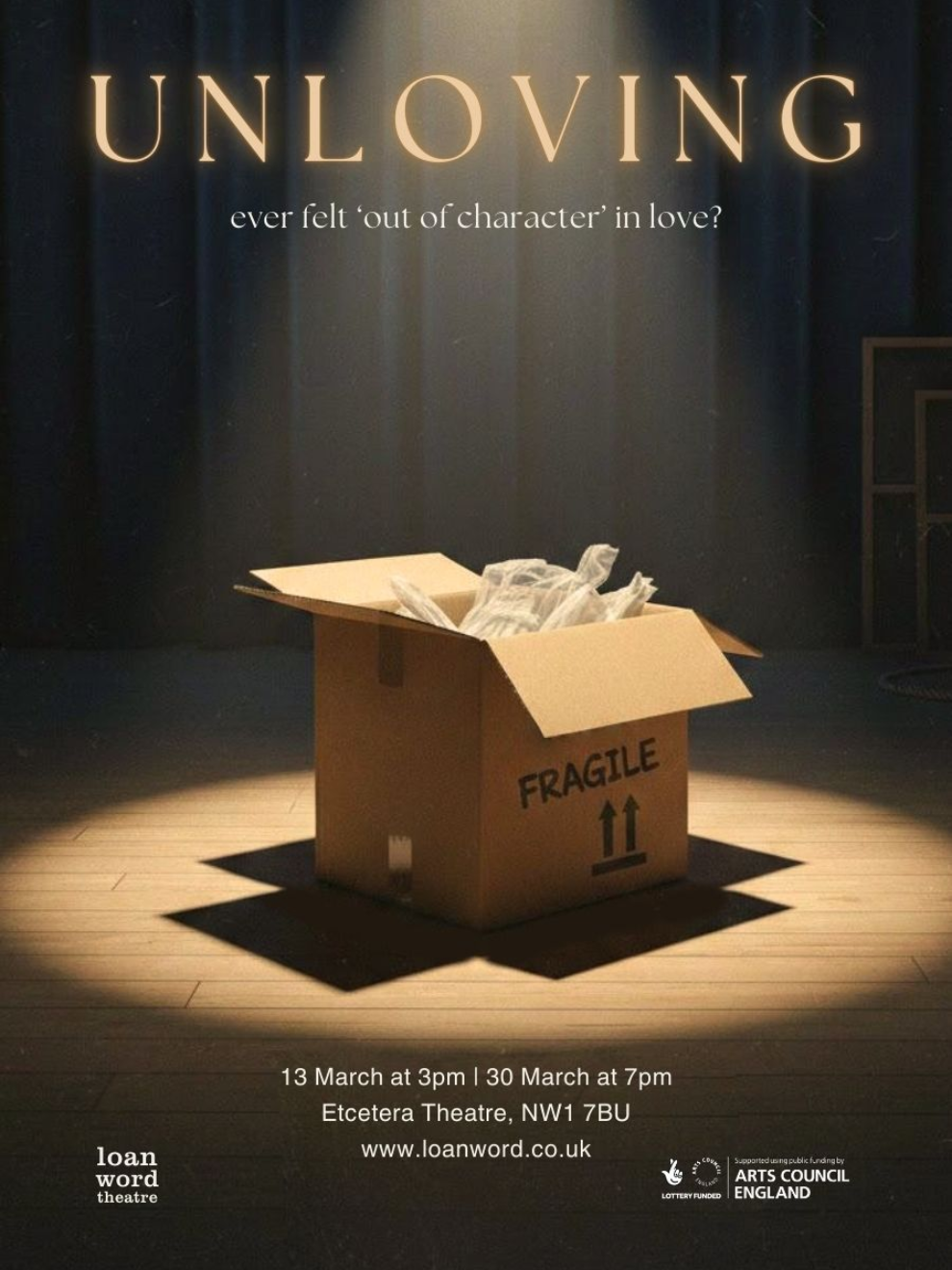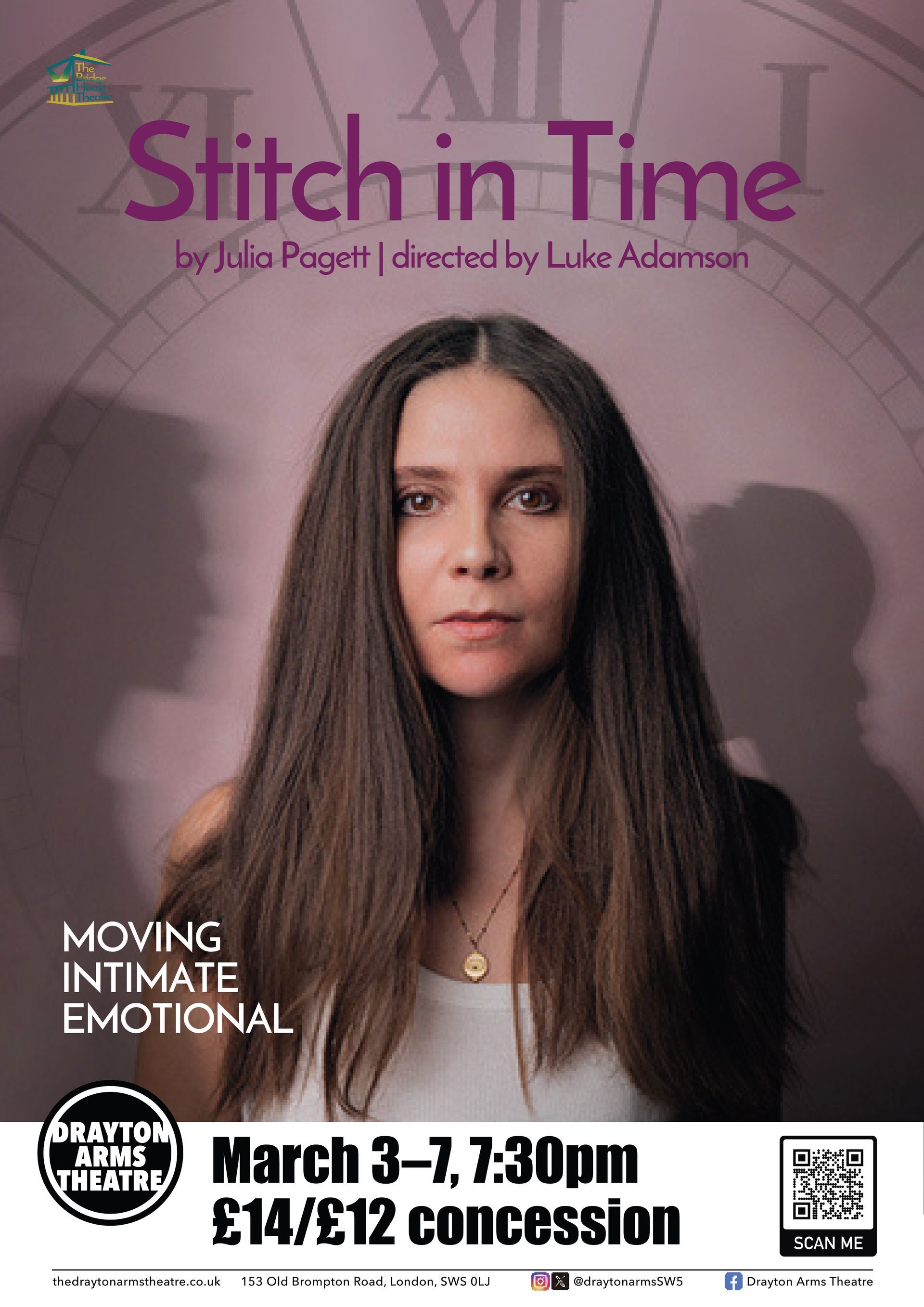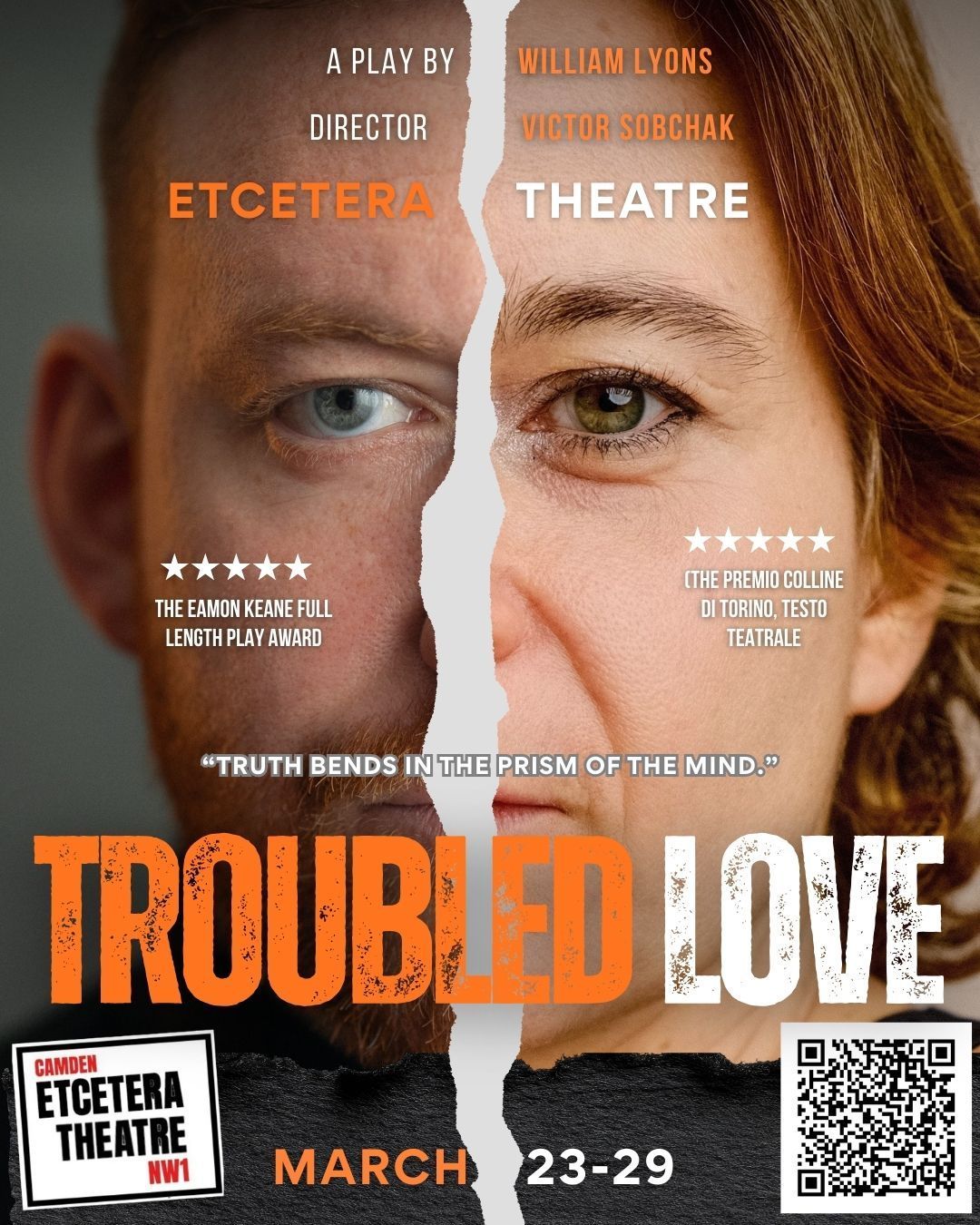ANAHERA
Finborough Theatre
ALICE KORNITZER is getting noticed as a director, with four Off West End nominations for Chummy already under her belt. She talks to Heather Jeffery ahead of starting rehearsals for ANAHERA at Finborough Theatre.
Alice Kornitzer fought against becoming a theatre director. Coming from a theatre family, where mother was a free-lance director and her father was a translator (of Hungarian to German), she wanted to break the mould. So, what happened to change her mind?
Certainly today, the sheer enthusiasm for taking a script and bringing it to life on the stage shines out from her rather petite frame, loud and clear. The script chosen is one that Kornitzer feels is the right one for her to tackle. Two years ago, she founded the Sharp Image Company concentrating on new writing with an international bent. “What I do with my work is to take these universal aspects and shine a light on them” she says.
ANAHERA has already been extremely well received in New Zealand winning the Most Outstanding New Zealand Play at the Wellington Theatre Awards in 2017. It had a staged reading at Finborough’s Vibrant festival in 2018, but Kornitzer has never seen the play. She fell in love with the script after Finborough’s Artistic Director Neil McPherson sent it to her. “We’d been talking about me directing a full-length production since the beginning of the year and pinging scripts back and forward” says Kornitzer. “When this one landed in my inbox I immediately fell in love with the pace and rhythm, the structure, the unique storytelling and the themes. Absolutely the one I wanted to do … it was the themes that stuck with me.”
Kornitzer is very self-assured and has beautifully clear diction. Whilst having an energy, she’s blasting away with ideas, the truth is she’s well-modulated, she’s not rushed, the words aren’t tumbling out, they’re very well thought through and they reveal a keen intelligence.
That’s not to say that she can’t come out with a comment that surprises. When asked to describe ANAHERA, she suggests that she could have ’crass’ as a tag line. “The play is about child abuse but it’s more about childhood trauma. It looks at the subject in a subtle way, instead of newsworthy. It’s not about physical or sexual violence, it’s more about punitive action. The environment often leaves indelible traumas in adulthood”. Something that really attracts her to the play is that it is “redemptive”. She explains that “the characters are keen to try and work things out rather than disregarding the pain and want to find a solution and live a healthy life”.
The story features a Maori social worker, whilst the family is white, and this is where the play has an extra dimension. This is something that Kornitzer can relate to very well. “I don’t consider myself to be a British director. I’m British born, but half English, half Hungarian and I grew up in Berlin.” Kornitzer has a rueful smile when she explains that “here I’m the German girl, when I was at school in Berlin, I was the English girl. I’m not specifically from a culture for which the prism of everything I see illuminates it. I’m not German and neither of my parents are German.” She believes it makes her more open to characters and behaviour, she sees the universality. ANAHERA is set in New Zealand with Maori New Zealand and white New Zealand actors but what Kornitzer finds interesting about the characters is that “they’re applicable to all audiences”.
Kornitzer cut her dramatic teeth whilst in Germany. She was in the Berliner Ensemble for five years which was Brecht’s old theatre before returning to the UK where she gained a Drama BA form the University of Bristol. As a child she was dead set against a career in theatre. “I desperately sought a sense of normalcy and routine” says Kornitzer. “When I got that question ‘what do you want to do?’, I’d give some bizarre answers, accountant, doctor, normal and standard jobs”. Her mother moved from a freelance director to teaching professional acting in Vienna and her translator father also worked as dramaturg and director. In fact, they met whilst working on the same production. “I didn’t want to be an artist and everything that entails” says Kornitzer “but when I was a teen, I quickly got it into my head that I wanted to be an actor”. Although she came very close to being a jazz musician on trumpet, the acting career took off. It was only when she was studying drama in England that she was persuaded by her tutor to try directing.
After some screaming matches with her in which Kornitzer outright refused to do it, she eventually had to succumb to pass the course and then discovered something revelatory! “Whilst I had been in the right workshop, I was now operating the right tools. Directing became very accessible. I was suddenly transported to a creative world. I was okay as an actor, but as director the glove just fit much more than it had before”.
“We tell ourselves these myths about what’s right and what’s wrong. I wouldn’t have done so well as an actor if there was not a glimmer of talent. I loved it, loved being on stage.” Kornitzer has been fortunate to go from strength to strength. Wherever she’s been working it has led to another job. One of her biggest achievements was directing Chummy at White Bear Theatre which was nominated for four Off West End Awards including Best Director. It was an innovative psychological neo-noir thriller. If ANAHERA sounds like a play which might also sit well in the thriller format, Kornitzer quickly knocks this on the head.
Kornitzer recently met the playwright, Emma Kinane, a graduate of Toi Whakaari: New Zealand Drama School who has worked as an actor, writer and director in theatre, television, film and radio. They hit it off straight away. “She’s marvellous, it’s a stunning play. It’s more about the cultural conflict between Maori and Pakeha (white New Zealanders)” says Kornitzer. “She (Kinane) was telling me even though Maoris only make up 14 or 15 percent of the population when media does report on child cases, it’s more about Maori, almost as though whites have no trauma. The Maori social worker is part of the conflict.”
One of the questions the play explores is whether a Maori is equipped to comment on values and parenting styles of a middle class white family. There are borderline racial statements too. So ANAHERA is less of a thriller and more about a debate. “Kinane is very hands off” says Kornitzer, “she’s really excited about where I’m taking it and has offered her drinking buddy services!”
Kornitzer’s plays have a very strong visual tonality but she starts with the actors and the characters. She works very organically. She brings out another one of her surprising assertions. “I don’t block plays” she says. “I sometimes need to for technical or logistical reasons, but I want the actors to search for what feel right, to work with impulses and create the world in which everyone is playing”. We’ve all seen work that seems over choreographed, putting limits on the actor’s movements around the room, so this seems a welcome admission.
“Creatives come and create in their field and what belongs to that” adds Kornitzer. She gives an analogy of how she sees directing. “I’m the crust, the creative team is the core and the actors are walking on the surface making it all visual for the audience”. She’ll be keeping convention with the play and its script, the rhythm of the language. As it’s still early days, she’s hoping it won’t be a naturalistic set, but it will show a world of normal family function. “A household that would look like the audience’s own, so that they really see themselves reflected, the standardised concept of a nuclear family. The social worker gets up in the morning and does her job. Later in the play the fact that she’s Maori makes a different. Truths burst out. There isn’t a generic answer, but I like the hope that the play brings.”
Kornitzer always looks for that sense of hope in the broad range of plays she’s chosen to direct. “Even in dystopian plays” she says. “This world is overwhelmed with constant problems which infringe on our livelihoods. Warfare, climate change, financial hardships, social hardships, fractured societies. There’s a huge question mark over all of it. At the macro and micro level, I want to create work that gives hope, that builds towards something, even if we only have 50 years left on this plant”. There, there’s another whammy! Kornitzer is deadly serious. She wants to start and continue a dialogue of hope, start bringing people together again. Sharp image.
Kornitzer loves working in pub theatres and has the utmost respect for them. “I had a great time at White Bear, a little bit of work with Theatre 503 theatre, I like the Finborough. I’d certainly return to it and do more work. In a theatre career you either work or you don’t. I’m a full-time theatre director but I also teach acting. I don’t want to stay in fringe for ever, I want to get to a subsidised house but wouldn’t turn down an offer at the Finborough. Pub theatres are a great steppingstone, getting artists’ work out there, getting work seen, its extremely difficult for emerging artists, but I’ll always be happy about having my foot in it. I’m not just passing through.” The earnest and serious Kornitzer now has a smile on her face. “Of course, if the Royal Court is listening …” she laughs. No need to finish that sentence.
“Audiences will really like ANAHERA” she says. “It’s proper text theatre which doesn’t try to be anything that it’s not. It’s got a bit of movement to make it look funky no doubt, but it is characters on stage debating something. What they’re debating will be universally recognised by everyone. Everyone can tell horrible stories about their childhood, everyone has a chip on their shoulder, everyone thinks they're owed". Even though we are flawed we can pick ourselves up, we could actually do better.”
ANAHERA by Emma Kinane
Finborough Theatre, 118 Finborough Road, London SW10 9ED
3 - 28 September 2019
“Our children do as they’re told. That’s our family dynamic.”
11-year-old Harry Hunter is missing.
While they wait for news, Anahera – a newly qualified Māori social worker – supports Harry’s distraught parents.
But as the hours pass and the situation pushes everyone to their limits, Anahera is forced to take a stand.
ALICE KORNITZER BIO
Director Alice Kornitzer began her career as an actor at the Berliner Ensemble in Germany, before returning to the UK, where she gained a Drama BA from the University of Bristol. Direction includes Chummy (White Bear Theatre) which was nominated for four OffWestEnd Awards including Best Director, Wuthering Heights (National Tour), Apocalypse Laow (Katzspace), Sir Walter’s Women (The Great Hall, Winchester, for Hampshire Heritage Trust), The Taming of the Shrew (Petersfield Shakespeare Festival and Theatre Royal Winchester), Tejas Verdes (The Court Theatre Training Company), Broke Britannia (Bridewell Theatre) and The Accidental Caregiver (Robert Moss Theatre, New York City). Assistant Direction and Dramaturgy includes Die Präsidentin (Theater Magdeburg), Happy New (Trafalgar Studios), Tejas Verdes and Allotment (Edinburgh Fringe Festival), and Das Fieber (Theater Unterm Dach, Berlin). She was the recipient of the 2018 European Theatre Conference Artist Residency Award.
@August London Pub Theatres Magazine Ltd
All Rights Reserved
